
If there is one piece of dialogue that stands out more than the rest as what the entire prequel trilogy/era is about, it’s “Heroes on Both Sides!” This is a term that is used in the opening crawl for Revenge of the Sith and even as a title of an episode from Season 3 of The Clone Wars series (the 3D version). This is a line that has stuck out to many fans and has led to many discussions of what the true meaning behind that line is.
What exactly does it mean that there are heroes on both sides? Is it really possible that the good guys can help the bad guys and vice versa? Is there even a difference between what can be viewed as good and evil? Can there actually be a middle ground or gray area between this conflict that is basically two sides of the same coin? None of that is officially stated in any form of prequel media but it’s definitely questions that one would most likely think when either watching a film or series, reading a novel, or playing a game from this era of Star Wars.
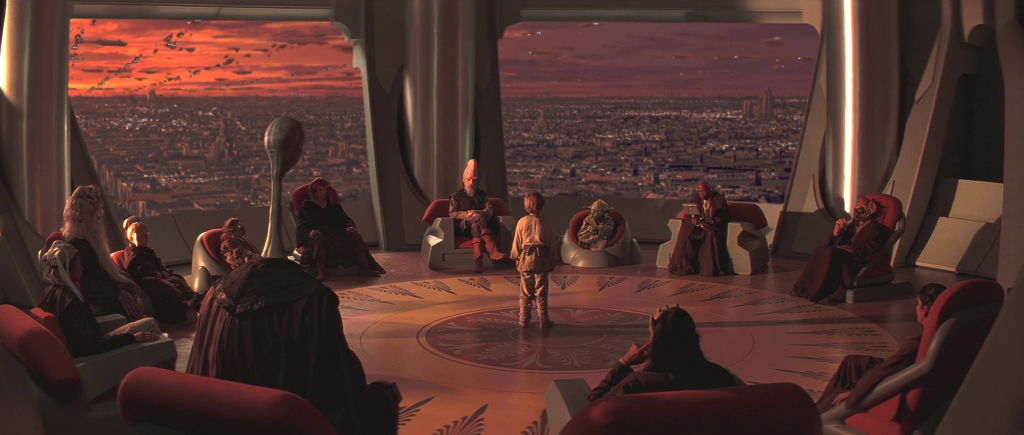
The Star Wars prequels have been called many things over the past two plus decades but one word I think stands out more than anything else is simply, fascinating. Whether it’s fascinatingly good or fascinatingly bad, it’s no doubt fascinating. As I have gotten older and look into the deeper meaning as to what this timeline of Star Wars is suppose to stand for is how the Jedi’s portrayal throughout this era does strike a fine line between being the heroes of these stories as well as the protagonists. With the original and sequel trilogy, it’s made perfectly clear who’s suppose to be seen as the heroes and villains. With the prequels on the other hand, not so much.
I’ve stated in the past that there is a clear difference between a hero and a protagonist. A hero is someone that can be described as the character that you are following is clearly the good guy or girl of the picture. A protagonist, on the other hand, is simply the main character of the story that you are following regardless if they are good or bad. There’s been multiple different examples as to the clear difference between these two forms of literature but there hasn’t been quite one with the amount of intrigue than the way the Jedi are portrayed throughout the entire prequel era. As of result, I’m going to look at three main Jedi characters that are the main driving forces of this era, Anakin Skywalker, Obi-Wan Kenobi, and Ahsoka Tano.
Anakin Skywalker
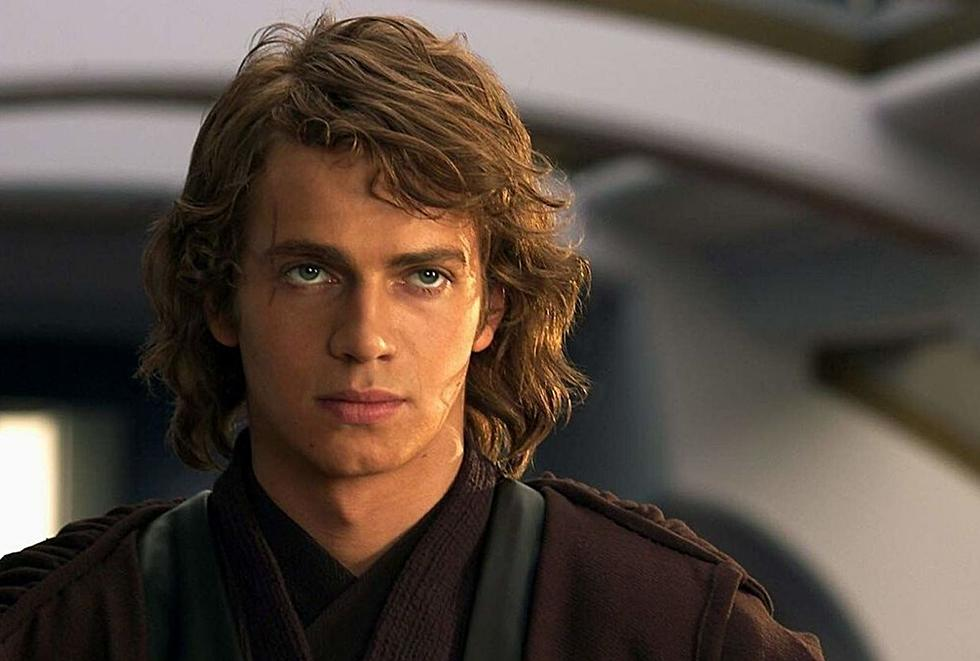
It’s clear as day that Anakin Skywalker is suppose to be the main character of this entire era. He’s the one that we spend the most time with in both the films and Clone Wars series, he’s the one that grows and changes the most as a character, and is undeniably the one that Lucas and company wants the audience to believe is the most important character of this era. Just as the original trilogy was about Luke Skywalker learning to bring the light into full balance to corrupt the dark, this trilogy/era is about Anakin Skywalker having the dark trump the light in a way that it brings both of these respective eras into a full circle. It’s the bloodlines of both Skywalkers that had decided the fate of the galaxy at least two times (and later three). Whereas Luke’s journey towards the rise of the Jedi was rather simple and straightforward, Anakin’s journey towards bringing the end to the Jedi is more complicated.
Once we see him as a young boy in The Phantom Menace, we see what we would expect from any kid his age, a little fella that is burst with energy, excitement, and optimism for what lies ahead in his life once he is able to break free of being a slave. It’s once he meets Qui-Gon Jinn that gives Anakin a chance to live the life of a Jedi Knight, something he claims that he has always dreamed of. Anakin is in the mindset that this will not only bring great power to himself but being able to bring that power along with others which he believes can free his mother from slavery and even save people from dying. However, as he grows older he sees that the life of a Jedi isn’t what he envisioned. As a matter of fact, being a Jedi can totally suck.
There are many things that is considered to be forbidden for a Jedi. Things such as love, attachment, and even just plain emotion is considered a cardinal sin for a Jedi. It’s considered a sin because it is believed that feeling anything resembling love, attachment, or emotion can make start down the dark path towards the dark side. However, with what we see with Anakin throughout the amount of time we spend with him throughout the movies and tv shows, it does raises a few question marks as to whether or not that is actually legit?
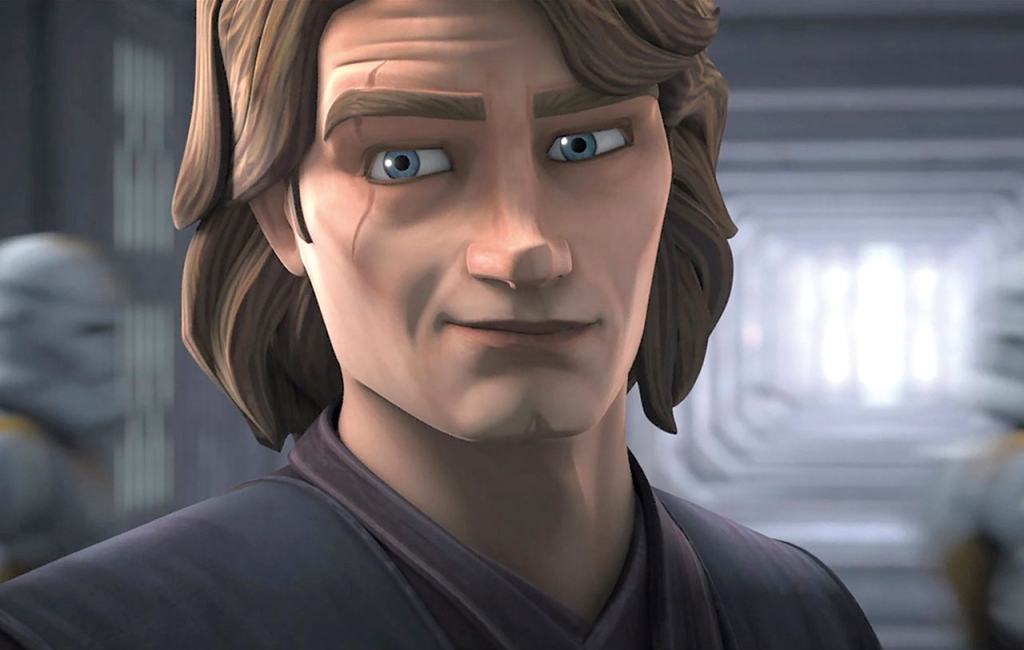
Throughout Attack of the Clones, Revenge of the Sith (at least the first half anyway) and both Clone Wars series, we constantly see Anakin breaking the rules as to what you can be as a Jedi. He’s secretly married to Padme, he has grown attachment to his master and his apprentice, he constantly feels fear, anger, guilt, and aggression, and we even see him flat out murder tusken raiders (all the men, women, and children of their kin that he describes), but he still remains himself. For at least a good portion of the Clone Wars timeline, he still remains loyal to being a Jedi and nothing with being a Sith. Why is that?
Despite breaking the codes and traditions, he is still able to manufacture well as being a Jedi. It’s not until near the very end of the war that he slowly starts to descend down the dark path. After his apprentice leaves the order, his master siding more with the Jedi council than his own student when he doesn’t get ranked as a master, and having bad dreams that his wife will suffer the same fate as his mother that gets Anakin to snap and turn his back against the Jedi. It’s the more time the spends with the Jedi and the people around him that he becomes closer and closer towards the dark side of the force. It wasn’t because of him breaking the rules that made him become a Sith by the end of it, it was him realizing that those rules were holding him back to unlock his true power that he could provide for himself and the ones he cares about.
It’s 100% intentional that the point of the prequels was to show someone like Anakin Skywalker can turn evil but it’s hard to describe whether it’s through the perspective of Anakin as a hero or as a protagonist. If the Jedi codes is anything to go back, perhaps that was the one thing that was keeping Anakin from being who he really is. There will be a bit more details on this matter later on (particularly about Anakin’s role as the “chosen one”) but for now, it’s worth noting that Anakin can be described as the kind of Jedi that just shows how flawed their traditions are.
Obi-Wan Kenobi
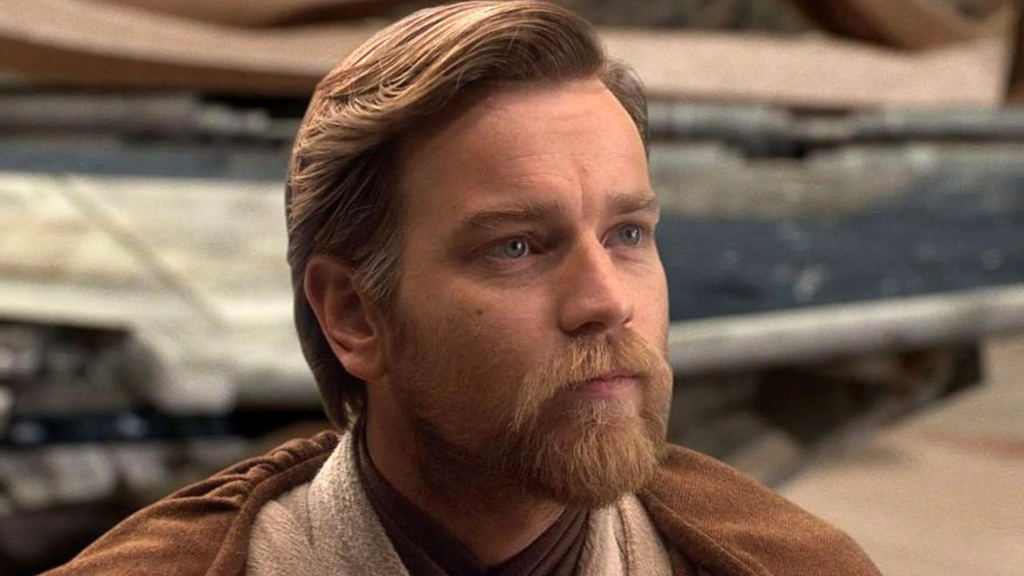
Of the three main Jedi characters that the prequel era focuses on, Obi-Wan Kenobi is undoubtedly the one that is the best example of a Jedi that has been able to adapted to their own rules, traditions, and beliefs. He was the apprentice of a wise Jedi Master known as Qui-Gon Jinn. He is described as being as wise as Yoda and as powerful as Mace Windu. Most importantly, he uses his powers of the force the way the Jedi have intended, the way that Yoda even officially states to Luke in Empire Strikes Back, for knowledge and defense, NEVER attack.
Obi-Wan is considered the one Jedi that is constantly referred to as the negotiator. He’s always tries to use the force to find ways to get through conflict with not physical attack but with words. He uses the force to defend the ones he needs to protect, not to attack those who oppose him. Obi-Wan Kenobi is the main Jedi that we know is 100% fully committed to be a Jedi. He follows everything to a t, explores the good that can come with being a part of the organization as well as the bad, shows wisdom and compassion for others, and knows the true meaning of being a Jedi Master. However, he’s definitely not one-noted and has even had cracks in the armor.
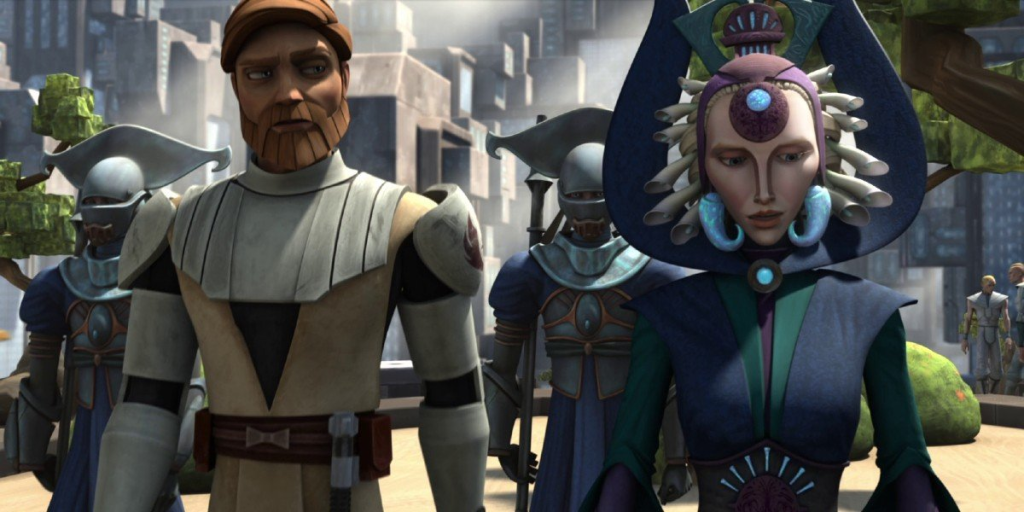
Firstly, there was a relationship he once had with Satine Kryze, the queen of Mandalore, when he was younger. Despite her being Obi-Wan’s one-way ticket out of the life of being a Jedi, he remained committed to being a Jedi but admitted that had Satine said the word, he would have left the Jedi Order. That helps ties back into Anakin’s suppose relationship with Padme. A relationship that is never 100% stated that Obi-Wan knows (at least until after Anakin turns) but deep down, he does know about it. Obi-Wan knows the feeling of love and attachment despite it being forbidden for a Jedi. He knows the feeling of wanting to leave the organization so he could be allowed to feel that without much remorse or regret to it. He understands wanting to walk away from the order, just like Anakin once stated to someone else he carried about. Just like how that certain someone knew, Obi-Wan surely knows as well.
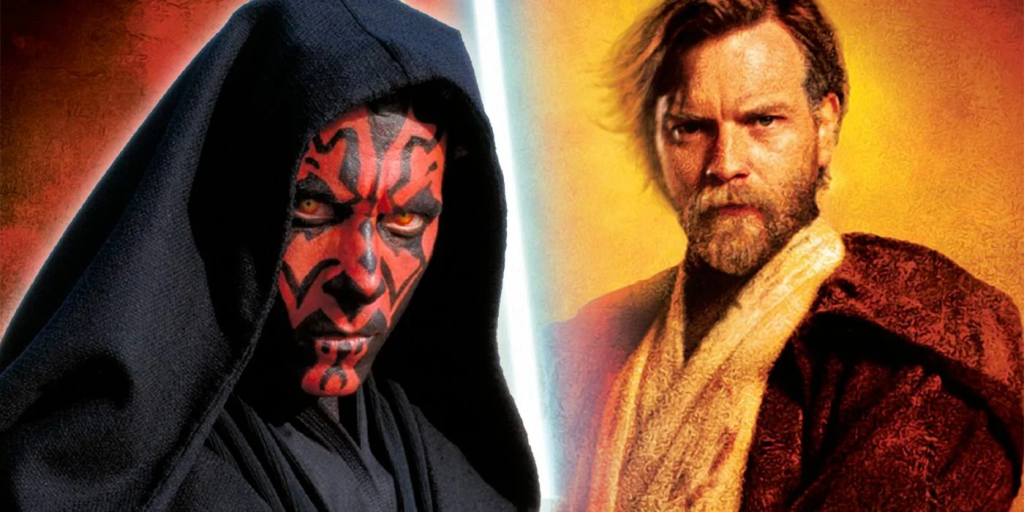
There also comes Obi-Wan’s worst nightmare coming back to life in the form of Darth Maul. The one man that represents Obi-Wan’s potential pull towards the dark side. That pure evil that was somehow able to survive being cut in half in The Phantom Menace but is now back and possibly even more dangerous than ever. I won’t get into all the actions that Darth Maul commences to make Obi-Wan snap but the one moment that sticks out is the two’s first confrontation since their one in Naboo. Obi-Wan is clearly overwhelmed by Maul and his apprentice and it’s the one moment that Maul brings up the death of Qui-Gon along with Obi-Wan’s clearly emotional reaction to it. Obi-Wan breaks and tries to end the fight with Maul but gets kicked to the side as he is clearly unfocused. It’s then that Maul speaks of these important lines, “Your rage has unbalanced you! That is not the Jedi way, is it?!”
It’s that moment along with the events that transpires between him and Maul throughout the rest of Clone Wars into Rebels than even a Jedi has clearly noble as Obi-Wan Kenobi can be tested with what it means to be a Jedi. Obi-Wan is definitely the most noble Jedi of the three that I’m discussing for this piece. However, just because he’s noble doesn’t mean he has to blindly agree with everything he stands for. He’s just good at hiding it.
Ahsoka Tano
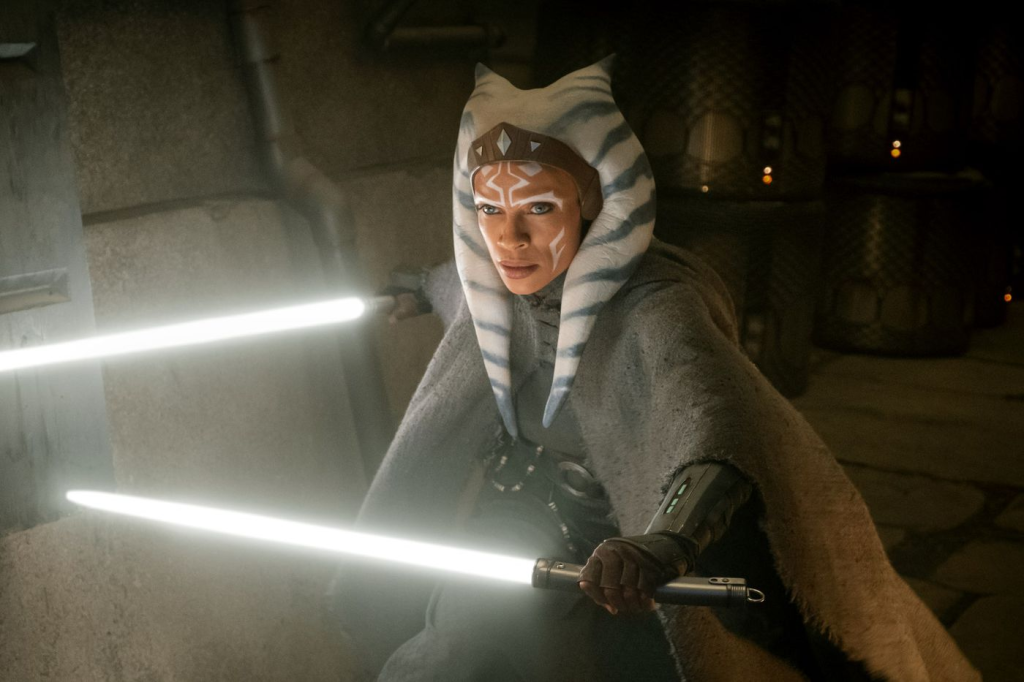
Now, here we go with the character that despite making no appearance in the three movies and not even referenced, is arguably the most important character in the prequel era. While George Lucas clearly intended for the prequels to be strictly about Anakin Skywalker and his turns towards the dark side, Ahsoka’s story is also one that greatly resembles that one. However, the only difference is that Ahsoka’s growth is not strictly to turn to the dark side after first joining the light but to reject both sides.
When we first see Ahsoka at the beginning of the Clone Wars feature film, she basically resembles Anakin as a young kid. She’s energetic, hopeful, and optimistic with what she can be as a Jedi and is hoping to seek thrills and exciting adventures for what is to come. As the series go on, Ahsoka learns to be more mature and responsible as a Jedi Knight. While she still has that snippy attitude and will crack a one-liner or two, she soon starts to realize that war is not all fun in games and lead to dire consequences if she is not careful. She slowly starts to take her first steps as not just a more mature adult but also seeing through the faults of the Jedi order.
A big question that many folks has always asked was how is it that Anakin’s personality and character seem to radically change in the Clone War series but not in Episode II or III? An obvious answer can be that Lucas and his crew clearly didn’t plan ahead to make the continuity more consistent in between the films and the series but a more honest answer would be Ahsoka herself. Regardless of whether or not it was planned from the beginning, it’s Ahsoka that represents the light in Anakin during his time in the Clone Wars. The kind of light that Anakin was missing during his earlier time with his master Obi-Wan at the beginning of the Clone Wars and the king of light that Anakin was most desperate for after his apprentice left.
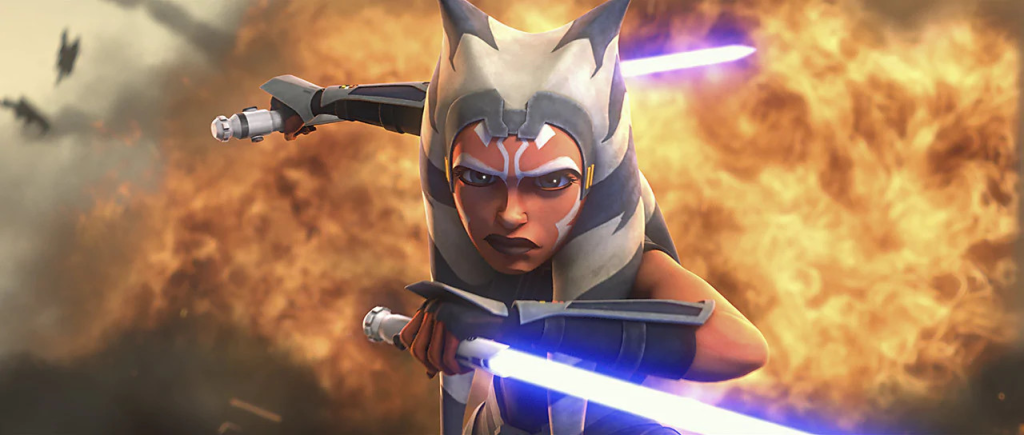
That is a big reason as to why, despite not making an appearance in any of the films, there may not be a more important character in the story of Skywalker than Ahsoka Tano herself. Not just because her story can mirror the likes of both Luke and Anakin Skywalker respectively but she also represents the gray area of the force and the independent nature of it. When she walks away from the Jedi order at the end of Season 5, that wasn’t because she has now pledge alliance to the dark side, it’s because of how she has pledge her alliance to no one, not even herself. She no longer represents the Jedi and never represents the Sith, so who side can she be on? That is the question that Ahsoka most likely had ask herself after her departure from the Jedi, even when she kinda gave them an extra hand in the final few episodes of the series. Even though the films themselves have never fully committed to exploring the “middle-ness” of the force except for a handful of hints here and there, Ahsoka is a prime example of how sometimes there is not an easy answer as to what side of the force once wants to be fully committed. Both the light and dark sides have their strengths and weaknesses but also have their own rules and traditions that one must obey if they wish to become one or the other. At the end, Ahsoka simply refused to play either game. She may understand why others will but she can never do it herself.
True Intentions of the Jedi
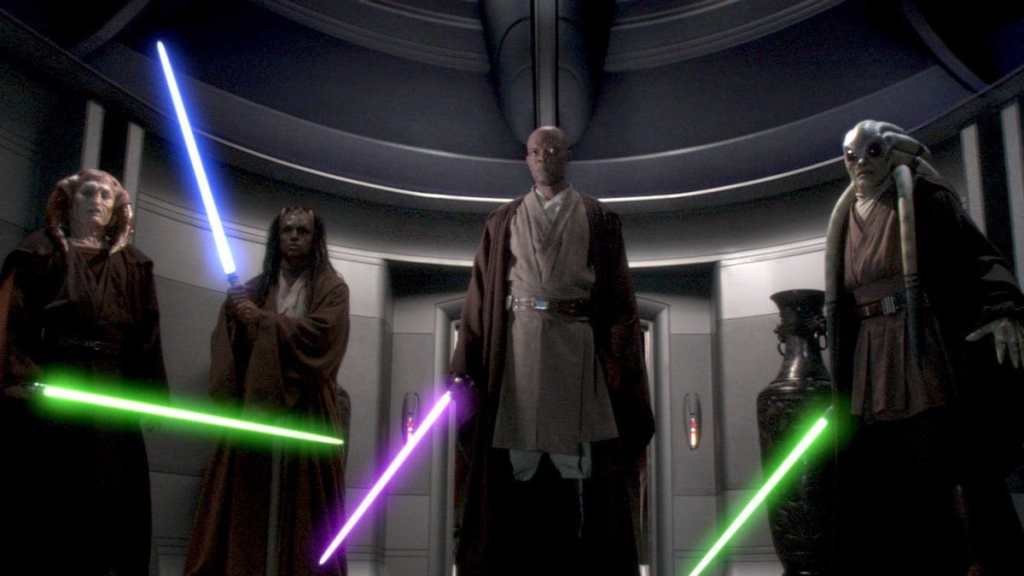
When looking through the prequel era of Star Wars and how the Jedi are portrayed, one can’t mistake them for being very dumb and arrogant. They were all one-note, emotionless, unaware of the real world which they live in, and even couldn’t figure out the fact that the Palpatine, the main bad guy they had been looking for all along was hiding in plain sight the whole time. Because of that, it lead to their destruction and own extinction. They were able to let all of it slip through their fingers because of their refusal to evolve. At the same time, one can’t also mistake the fact that perhaps this was the intention all along.
Perhaps the Jedi being portrayed the way they were was what the Lucas was trying to do the whole time. He never saw the Jedi as being the perfect organization or one that audiences show grow up wanting to be, he saw it as an organization that is best to avoid or taking any inspirations from. He never saw the Jedi as being as much more out of the dark that the Sith were. Perhaps he was never trying to make the Jedi come across as the heroes of their own story. Perhaps he was actually trying to get across the fact that the Jedi….kinda suck.
When looking at it through those lenses, the prequel era can be best described as being about flaw traditions and religions and what happens when you stand by those beliefs without bother to question it or move on from them. Sometimes that can lead to evolution, other times it can lead to destruction. And there was now three characters throughout this era of Star Wars that seem to have an understanding of that than with the trio of Anakin Skywalker, Obi-Wan Kenobi, and Ahsoka Tano.
The Real Meaning of The Chosen One
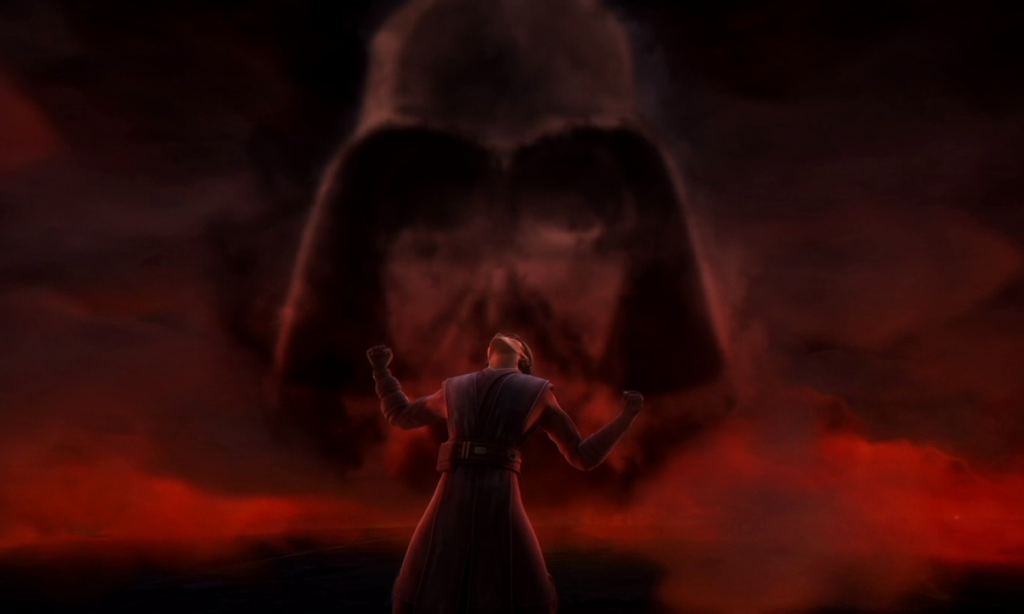
One last thing to talk about when describing the inner conflict between the heroes vs protagonists narrative with the Jedi is what the true meaning of The Chosen One is suppose to be. The films themselves claim that this terms comes from a prophecy (which really doesn’t get explained or focused on) that refers to the one that will bring balance to the force by putting an end to the dark side and restore peace and justice to the galaxy. The Jedi order believes is to be Anakin Skywalker, strictly because of how high his mini-chlorians counts are and not much else.
Personally, I found the whole chosen one thing to be more of a metaphorical term than one that has any story meanings. Heck, even Anakin during The Clone Wars at one point claimed it was just a myth. However, when looking at it from a story perspective, this also ties back into the flaws of the Jedi. They were in that same stubborn mindset that some random boy was the supposed chosen one just because of a high blood count. They believe that Anakin was the one that have been looking for all along. They were willing to bet the farm on this young man because they believed he would be the chosen one just because. They were trying to hype him up into something he was just not or even was. Yet, what they believed turned out to be true….from a certain point of view.
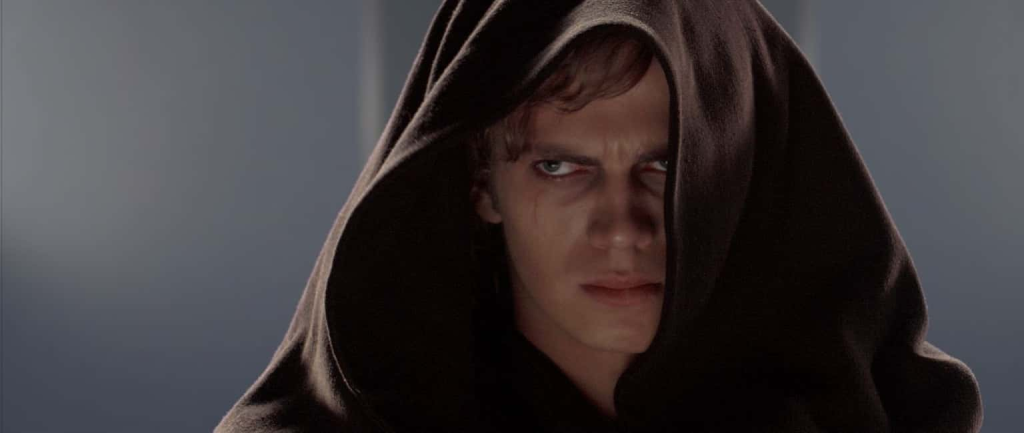
Sure, in the end, Anakin Skywalker might have fulfilled his destiny by saving his son and destroying the Emperor (at least for the next 30+ years) but he didn’t quite do it from a heroic standpoint but from his own standpoint. He didn’t destroy the Emperor as a means of redemption or sacrifice, he did it because he liked his son a bit more than him. He wasn’t trying to be a hero, he was just trying to peserve his family name. This was both an act that could be described as both selfless AND selfish.
That might have exactly been the part of the prophecy that could have been misread as Yoda stated. Anakin might have been The Chosen One in the end but just because he was The Chosen One does not mean he had to be a hero.
In conclusion:
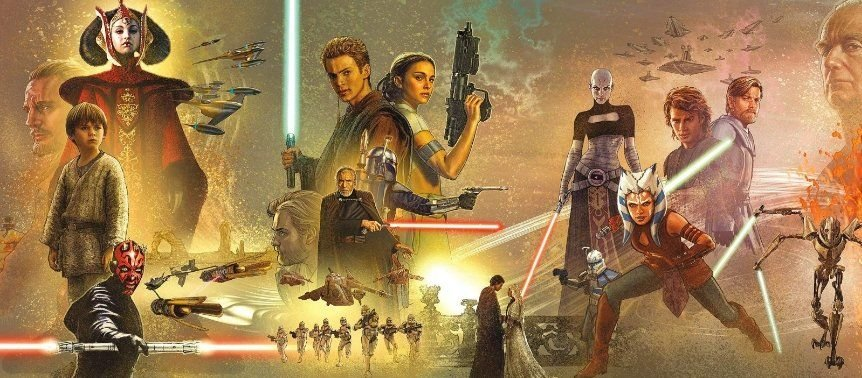
When viewing the prequels yet again, it’s hard to know get caught up in the complex nature of it. Whether you like it or not, it’s so vastly different and multilayered in every sense of the word, more so than any other forms of Star Wars media. However, one that does stand out the most for me is to whether or not the Jedi themselves can be described as heroes or even simply good guys. They’re not necessarily bad guys by any means but good guys might be a far stretch.
Throughout the prequel era, we slowly see the Jedi make mistake after mistake, compromise after comprise, that ultimately leads to their own downfall. It was being so strict and accustomed to their own standards and beliefs that blinded them as much that they thought it would make themselves immortal, when in actually just made them inhuman. It’s not exactly love or fear that leads to the dark side, it’s how the Jedi always seems to act and speak that it does. When the likes of Anakin, Obi-Wan or Ahsoka felt that, it wasn’t because they were turning evil, they were just being human. In the end, that is what the Jedi seemed to lack most in the end, humanity. Regardless if they stood out as the heroes or main characters of their own stories, the lack of humanity is what led to the end of the order until it didn’t. Guess that was the exact price that Rey, Ben, and company would have to pay over half a century later. The Jedi just can’t help but suck!
Next up: The Sequel Trilogy Perspective